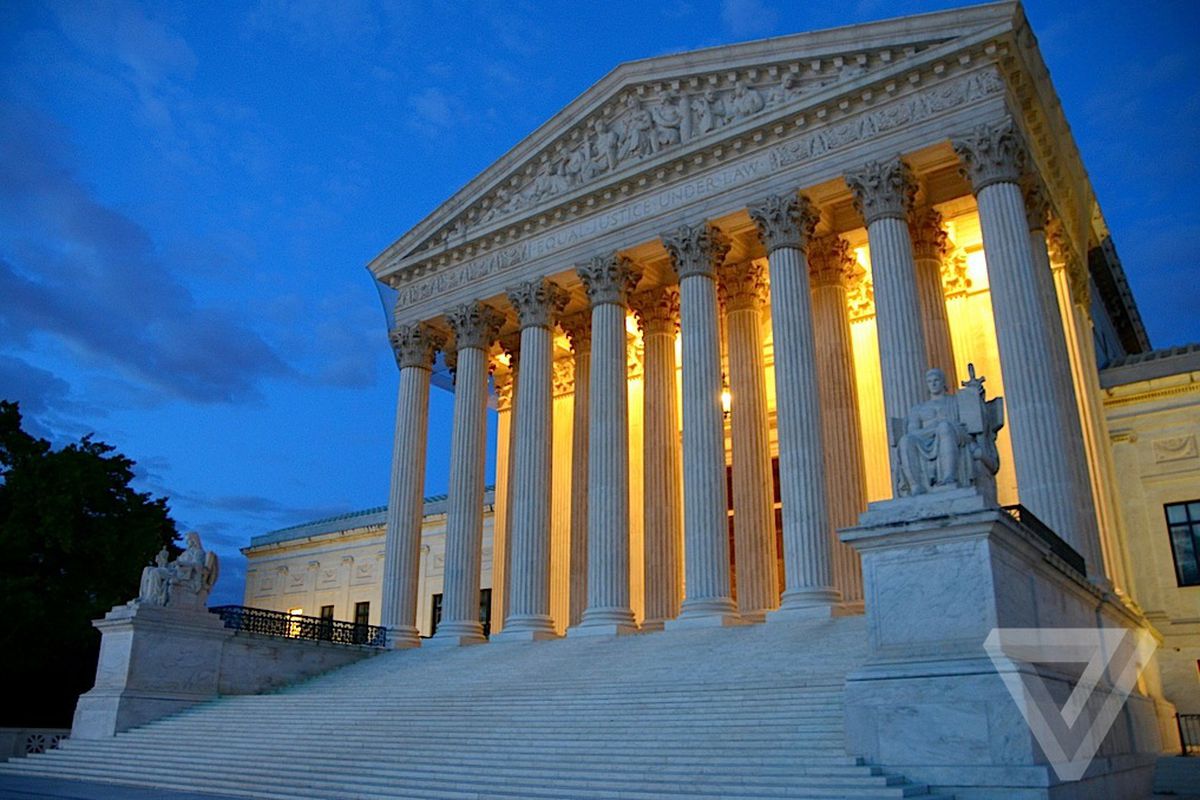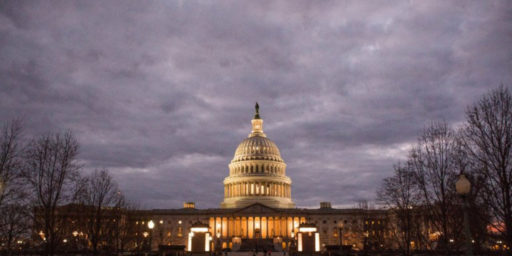On Age and SCOTUS
A good excuse to consider reform.
 The Upshot has some interesting charts on aging and the Supreme Court: How Modern Medicine Has Changed the Supreme Court.
The Upshot has some interesting charts on aging and the Supreme Court: How Modern Medicine Has Changed the Supreme Court.
Two related health trends mean that each Supreme Court nomination now has the potential to shape the nation’s highest court for far longer than in the past.
One is that Americans live decades longer than they did when the country was founded. At the same time, medical and public health advances have changed the dominant causes of death from infectious to chronic diseases. Infectious diseases typically kill fast, while chronic ones have a longer course. This shift toward a longer and slower decline, as opposed to more rapid death, means that justices are more able to select the administrations and political environments in which to end their terms — to, in effect, pass the baton.
I recommend the whole post, but the basics are summarized as follows:
The data confirms that the average life span of justices has steadily increased over the past two centuries. Justices confirmed before 1800 lived, on average, to age 67; those confirmed between 1950 and 1974 lived to almost 82. Only one justice (Antonin Scalia) confirmed between 1975 and the turn of the century has died, and the average age of this cohort to date is over 82 years.
As I have argued before, these data suggest that the model of life tenure on the Court should be re-assessed. If anything, the fact that Ruth Bader Ginsburg’s health over the next several years could dictate Supreme Court jurisprudence for the next several decades is a truly absurd proposition, whether one is hoping that she holds out or one is hoping that she leaves the bench.
Beyond that, it is problematic from a democratic point of view that the Court can be shaped for three or four decades after a given president has left office. And, without a doubt, the venom and undue drama that comes about each time there is a vacancy is driven by the fact that political actors know the stakes: a given appointee could easily serve forty years and no one knows for sure when the next vacancy is coming.
I have made passing reference to the notion of fixed terms on the Court, and this just reminds me that it is a good idea. I would propose a system similar to the one used for the Federal Reserve Board, which has 7 members each serving 14 year terms, with terms starting every two years. A given president would, therefore, appoint two members a term for a maximum of four. The Chair is named by the president from sitting members and serves a four year term.
Along those lines, I would proposed 18 year terms for SCOTUS, staggered every two years. A given president could never appoint a majority of the Court, but a two-termer could substantially affect its make-up. This would given a clearer connection between elections and appointments and would take out the vagaries of the process now (e.g., President Carter appointed zero members of the Court, but H.W. Bush appointed two–yet both were one-term presidents). It would also ramp down the degree to which a given vacancy becomes as massive as it currently is (again: the stakes now are people who could easily serve forty+ years–that is too long a period to give a single person influence of this level). I do recognize it would still be a big deal, but it would be a known, regularize process and the prize would be the same for every presidential term.
If we had such a system, Bush would have had four appointment, Obama four, and Trump one. That strikes me as reasonable and is certainly far less arbitrary than the current Court (which up and until Kennedy retired had a member appointed by Reagan, who left office in 1989 and who has been dead since 2004). Three Justices (Thomas, Gisnsburg, and Breyer) were all appointed in the 20th Century–and we are almost in the three decade of the 21st.
A tricky part (well, aside from the constitutional amendment, which I fully understand is highly unlikely) would be transitioning from the current system as a process would have to be delineated in terms of assigning terms to the current members of the Court.
Of the things that I would like to see reformed about the US Constitution, this strikes me as at least a vague possibility (but any serious change is going to be difficult, especially if one party thinks the current system is to their advantage).
And certainly such a proposal would need more detail than this post, which is intended not to be a final draft but to provide something to think about.
At any rate, I again recommend the linked piece that inspired this post in the first place.






I think the way to really honor the Founding Father’s intent with these lifetime appointments is to deny Supreme Court Justices access to antibiotics and anesthesia.
Also, apply leeches.
Just go all out on period medicine.
Or…and this may be a crazy idea…we should start treating the Supreme Court as a co-equal branch of government and return it to it’s proper place instead of allowing it to function as a super-legislature and acting as though it’s the Freakin’ Sun King.
It’s not that term limits are an inherently bad idea. It’s that the proposal doesn’t address the real problem. It’s not that Justices are serving too long or that times and number of appointments are left up to fate, though those are both legitimate issues of concern. The problem is that the Supreme Court currently plays a role for which it was never intended and which is profoundly unhealthy for democratic governance and society.
Mike
Steven,
I have a different spin on this, but this is something I care about a great deal. I definitely prefer term limits, but with a twist.
To begin with, I would set the size of the court at fifteen. To avoid court packing, the six new justices would be chosen by the two largest political caucuses (three each) without involvement by the president. Together, these six justices and the existing nine justices (including vacancies) would constitute the legacy justices and would retire in descending order based on age.
They would serve twenty year terms and each president, per term, would nominate one justice in each of his first three years. If one of the justices dies or retires, the replacement could only fill out the rest of the departed justice’s term.
The president would submit a ranked list of three nominees each time ranked by preference and the Senate could choose the one it prefers. If the Senate refuses to act, the president’s first choice would go through after one year.
There are some other things I’m probably forgetting, but this is the gist of it. This has struck me as a big issue for years and Scalia’s death drove it home. Lifetime appointments make the law arbitrary and, as you said, give presidents influence too far into the future.
Mike,
I believe your comment above is the first reasonable one I’ve seen from you.
Steven, you’re proposal, or a variation is reasonable
@Robert Prather: While I’m not against increasing the SC membership, I’m not sure how that would improve the court. It is likely that a change to terms from life time appointments will require amending the Constitution. That process will be difficult enough without adding the the complexity of the change.
@Gustopher:
In fairness, this should apply only to the strict constructionists.
There was a Doonesbury strip years ago in which the old Republican businessman character has just been told he has TB. ‘How do we treat it, Doctor?’, ‘That depends, do you believe in evolution?’, ‘No, of course not.’, ‘In that case we’ll use streptomycin.’
@MBunge: You could amend the constitution to deny the court the power of judicial review, which would severely curtail the significance of the Court, although I would argue that would more than diminish the Court vis-a-vis the other branches. Sans judicial review the Court is just an appeals court for non-constitutional matters.
The problem with appealing to intent is (at least) threefold:
1) It is entirely unclear as to the exact intent of the Framers for the Court. (There is a reason Article III is pretty brief).
2) Judicial Review emerged very quickly (1803), so the idea that the Court is crazy rogue only recently is at odds with history. (Arguably judicial was more or less expected given that we have a common law system in which we inserted a written constituion).
3) Even if we speak of the Court’s more activist period, it is (depending on how you want to measure it) somewhere between over a century old or going on a century. In other words, the powers are what they are and have been for quite a long time.
Many people seem to complain about the Supreme Court being a “super-legislature” when cases are decided in a way that those people don’t like…
If the Congress did its job we’d rely less on the Court. Once again, IMO the problem is voter failure. Careless, indifferent, stupid voters elect their avatars to Congress and we get a 535-way contest for biggest poltroon.
@Michael Reynolds: Just a short note to tell you that I love any comment that includes serious use of the word ‘poltroon’. Salute!
@Michael Reynolds: I agree voters need to be more responsible (see, e.g., turnout numbers).
But, as I like to stress, our system is sufficiently screwed up–too small of a House, geographic sorting (a malady of single seat district systems), gerrymandered districts (ditto), representational distortions in the Senate, the electoral college, etc.–that the issue is not just one of voters misbehaving. I would love to get to the point where we could more directly blame voters (as one can,and should, in most democracies).
But, poltroons indeed.
@Steven L. Taylor:
That would destroy the whole premise of Federalism.
@Andre Kenji de Sousa:
Keeping in mind that I think it would be a bad idea, it would not destroy federalism. You can have a federal system without judicial review.
David Kaplan has a new book out called the “Most Dangerous Branch.” I heard first heard about it on ton NPR today and it looks like an interesting read and theory.
I’m not completely convinced based on what little I know from the NPR piece, but it aligns with my preexisting position, so it does have a certain allure. I’d be interested to hear your take on Kaplan’s theory.
https://www.northcountrypublicradio.org/news/npr/644185178/new-book-warns-of-the-supreme-court-s-power
Every time I hear people say that the Supreme Court needs to be reigned in, and be treated more like Congress or the Presidency as a branch of government, I think of the regular Libertarian thought that the Federal Reserve ought to be be controlled by Congress. I’m not sure that I want a branch of government that is so obviously controlled by popular sentiment to be running or ruining our Judiciary, or controlling our central banking and monetary policies.
The only change I’ve heard of that seems a good idea to me is that justices serve a staggered 18 year or 24 year terms. Even then, I’m wary of making the Court more vulnerable to the vagaries of popular opinion.
As long as we are all dreaming of reform, mine is to see the cream of the law profession drawing up at list from which the president chooses. The top legal minds (as determined by their peers) would be taken from distinct pools of: the sitting judiciary, active lawyers and active law professors.
If even this group insisted on putting forward ideologues and partisan hacks, then there would really be no hope for the country.
@JohnMcC:
I’m bringing poltroon back!
@Steven L. Taylor:
If you eliminate judicial review, aren’t you pretty much tossing the Constitution out with the trash? If there can be no ruling on the constitutionality of a law, no law needs to conform to the Constitution.
@Kathy: There are countries that have democratic constitutions but lack judicial review, so it is not impossible.
Again: I am not arguing for such a change, but am point out how MBunge could achieve his suggestion. Part of point (aside from being an honest answer) is that what he is asking for has broader implications.
@Kit: The Federalist Society is the cream of the crop. They understand the role of the judiciary. Hardly anyone else does.
@Leonard: Or, more accurately, they have their specific view.
I was going to note that relying on some group of elites–as in “the cream of the crop”–to make recommendations was fraught with its own set of problems, but Leonard did it for me. Thanks, Leonard!
(To some degree or another, “the cream of the crop” among citizens is, in theory anyway, what legislatures are supposed to be. Hmmmm…)
@Just nutha ignint cracker: Indeed–I am not for ceding the power to a non-responsible party. And I will add, the main problem for SCOTUS has not been one of the general qualifications of the nominees.
@Just nutha ignint cracker:
Is the argument we can only consider change if it (seems) 100% problem free? In any case, I’m not buying it. You cannot attend university to learn how to legislate, nor how to run a country as an executive. But one certainly can study law. And when it comes to anything one can learn and perform, there is always a surprisingly agreement as to just who are the elite, at least amongst those in the field.
@Steven L. Taylor:
First, I did mention that the President would choose. Second, what percentage of the Supreme Court judges over the past, say, 50 years has been considered as preeminent in their generation? Harvard Law (if you are reading)?
I feel that the quality of judges matters, and I’d prefer the elite over the second-rate, as I’d prefer the second-rate over partisan hacks.
If the Senate is the chamber that was supposed to deliberate more compared with the House, then the Supreme Court should be the most deliberative of all. And for that, it requires men and women equal to the occasion. I don’t feel we have that today.
Oh yes, very rich, very white cream…
@Steven L. Taylor:
You can. But weakening the Judiciary in the American System would affect the balance of powers between the three branches, and as Latin American political system shows that can be really dangerous.